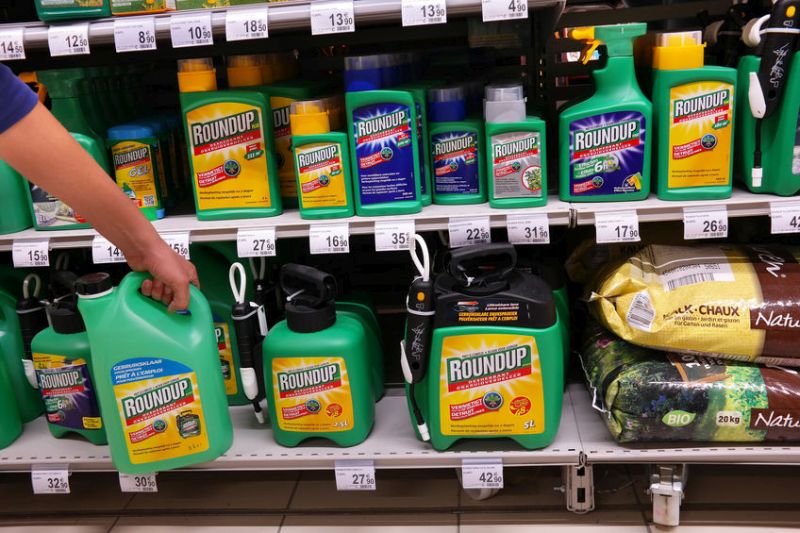New EU glyphosate study 'did not identify critical areas of concern'

A new EU study on the health and environmental impact of glyphosate - the world's most widely used weedkiller - "did not identify critical areas of concern".
The European Food Safety Authority (EFSA) has published a new report on glyphosate following years of concern raised over its potential impact on human health.
"The assessment of the impact of glyphosate on the health of humans, animals and the environment did not identify critical areas of concern," the regulator said.
"EFSA did not identify any critical areas of concern in its peer review of the risk assessment of the active substance glyphosate in relation to the risk it poses to humans and animals or the environment.
"A concern is defined as critical when it affects all proposed uses of the active substance under evaluation (e.g. pre-sowing uses, post-harvest uses etc.), thus preventing its approval or renewal."
Issues that could not be finalised include the assessment of one of the impurities in glyphosate, the consumer dietary risk assessment, and the assessment of risks to aquatic plants.
Outstanding issues include, among others, a lack of information about the toxicity of one of the components present in the glyphosate-based pesticide formulation submitted for evaluation.
This is needed to conclude the risk assessment of the formulation for representative uses, EFSA said. For this formulation there were no indications of acute toxicity and genotoxicity.
On biodiversity, EFSA experts recognised that the risks associated with the representative uses of glyphosate are "complex and depend on multiple factors".
They also noted a lack of harmonised methodologies and agreed specific protection goals.
The report added: "Overall, the available information does not allow firm conclusions to be drawn on this aspect of the risk assessment and risk managers can consider mitigation measures."
In 2022, the European Chemicals Agency (ECHA) carried out a hazard assessment of glyphosate and concluded that it did not meet the scientific criteria to be classified as a carcinogenic, mutagenic or reprotoxic substance.
Responding to the new study, head of EFSA’s risk assessment department, Guilhem de Seze, said: “The risk assessment and peer review of glyphosate represents the work of dozens of scientists from EFSA and the Member States in a process that has spanned over three years.
"It is based on an evaluation of many thousands of studies and scientific articles, and also incorporates valuable input gathered during the public consultation."
Glyphosate is a chemical substance used in a number of herbicide products and its use in Europe is subject to strict regulation.
It is currently approved for use in the EU until 15 December 2023.








